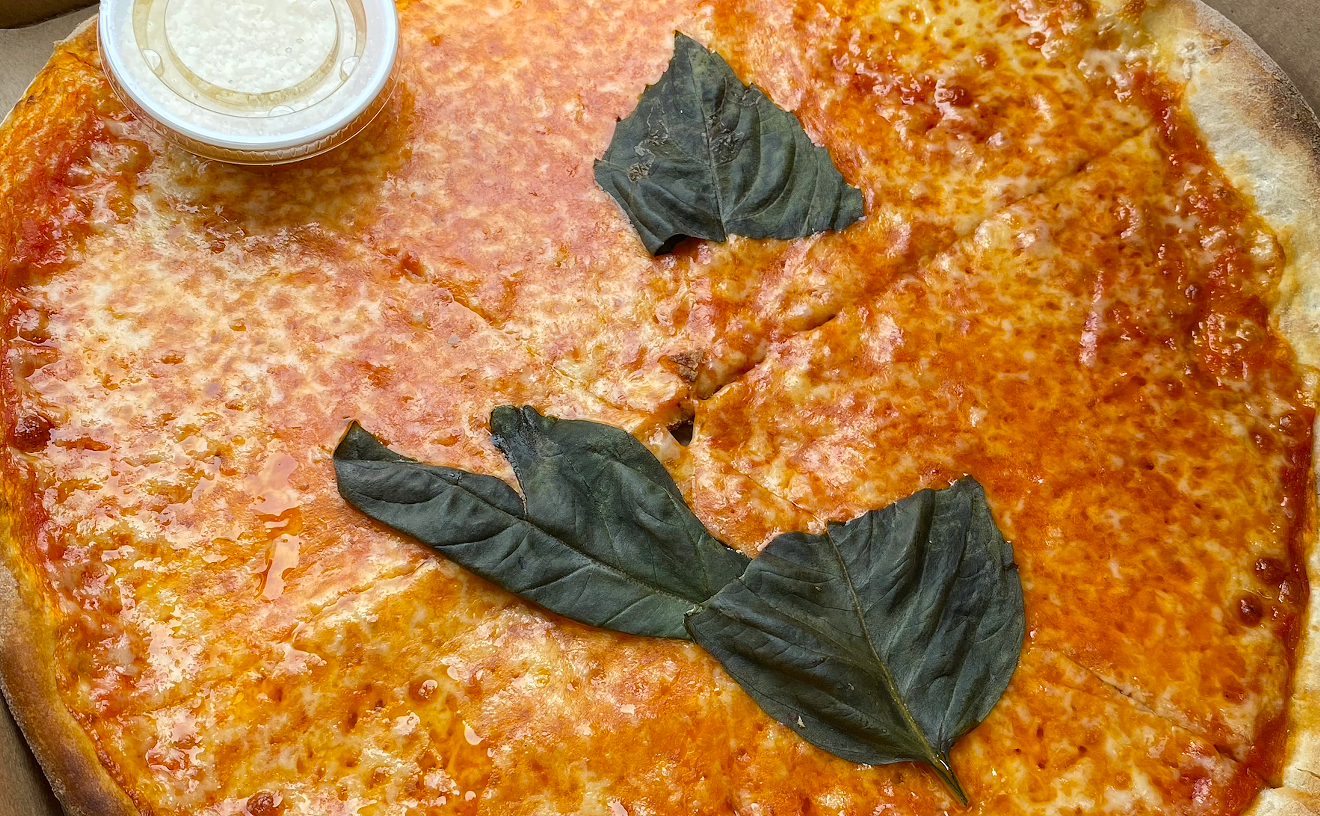I had to do a bit more adjustment — appetizers run $8-$10 and most entrées are priced twice that. Many mealtime basics of the Polish dives of my youth — pierogi, stuffed cabbage, the sauerkraut-and-pork stew called bigos — were demoted to mere appetizers. Entrées extended to apple-stuffed duck breast, braised ribs, and goulash paired with barley.
We weren't looking to stuff ourselves with the large portions ubiquitous in the nation's Central European restaurants, so we ordered soup and an appetizer to share, nibbling happily at a bowl of good salty pickles and crusty, locally made dark rye. In the first indication of what was to come, it was served with ramekins of sweet, fluffy herbed farmer cheese and what appeared to be freshly rendered lard, flecked with golden bits of smoked pork fat.
This was not a Polish coffee shop with delusions of grandeur. It was a Polish restaurant.
A bowl of zurek (pronounced ZHOO-rek), or white borscht, showed the same attention to detail. The pale, tangy, sourdough-infused broth was dotted with fresh herbs, slices of firm, garlicky kielbasa, and a perfectly-cooked hardboiled egg half. Stir in the dollop of sour cream, and the result is a terrific example of just how nimble Polish food can be.
And though certainly hearty and heavy as befits a Polish riff on cassoulet, the appetizer of fasolka po bretonsku — large butter beans steeped with kielbasa and bacon in a smoky, thick tomato base — put lie to Polish food's rep for blandness. If only they were open for lunch, it would be terrific on a cool winter day with one of the dozen Polish beers available.
We decided to share that duck dish, substituting potato dumplings for potatoes. I can boil potatoes at home any time; kopytka (ko-PIT-ka) not so much. Kaczka z jablkiem was not the duck breast described in the menu's loose English, but a half duckling with golden if not quite crisp skin accompanied by a smooth applesauce that tasted like freshly-baked apples. The meat was juicy and fork-tender, and accompaniments included that Polish-restaurant phenomenon of two cabbage salads, one a cooked red cabbage and the other a vinegary, mayo-less slaw. The best side of all was the kopytka: potato, flour, and egg-dough cylinders that do gnocchi one better. Boiled and then pan-fried, they had golden crispy edges and an almost fluffy interior. With their accompanying bits of sweet, oily sautéed onions, they provided the starchy thrill I'd been hoping for in the first place.










